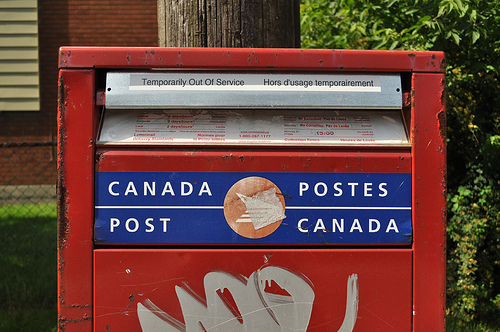When you donate to a Canadian non-profit organization, with or without charitable status, did you know that your donor dollars may be used in the latest attack by the Harper government against its critics?
According to fundraising and direct mail campaign expert Harvey McKinnon, Finance Minister Jim Flaherty is using the Canada Revenue Agency (CRA) as his own personal attack dog. “By publicly identifying and throwing suspicion on seven non-profits that are active on environmental issues, the federal government is trying to silence all other organizations that work on these issues … silence any non-profit that advocates for social change.”
McKinnon is referring to recently ordered audits conducted by the CRA on environmental non-profits, audits that cost a great deal of money and divert environmental advocates from their work. Among the groups targeted are The David Suzuki Foundation and Environmental Defence, both harsh critics of the Harper government. “The CRA audits distract an organization from its mission,” writes McKinnon in his blog, “and costs them an incredible amount of money and time dealing with the audits. This of course also wastes donor dollars.”
According to a CRA report, the audits were conducted to see if “any of them are operating just for profit.” It appears that the tar sands friendly Harper government is looking to intimidate into silence high-profile groups who are critical of the government’s energy policies, pipelines and other related environmental issues.
CRA audits aren’t the only tool of intimidation employed by the Harper government. Registered charities are forbidden to advocate on behalf of any social issue, and criticism of the government could result in loss of charitable tax status, which would financially cripple most charities. This can force charitable organizations to become virtual cheerleaders for the federal government.
Last month, Imagine Canada, a charitable organization that provides fundraising resources to other non-profits and charities, issued a media release praising the Harper government’s most recent budget proposal as it relates to charities. More recently, however, Harper’s war on Canada Post poses a serious threat to non-profits who rely heavily on the postal service in their fundraising efforts.
Imagine Canada President and CEO Marcel Lauzière, as far back as December 2013, wrote a letter to Canada Post President and CEO Deepak Chopra, expressing concern over the impact of a postal rate increase on the non-profit sector. Spokesperson Bill Schaper said they wanted to go on record with Canada Post as being concerned about what a postage increase would mean to non-profits’ fundraising activities. “We wanted to communicate directly with Canada Post, express our concerns about the impact on non-profits and we asked for a chance to sit down with them to discuss that. We also put in a written submission to the Minister responsible as well.”
Imagine Canada has some suggestions as to how Canada Post could “accommodate the needs of non-profits” without damaging their long-term financial and commercial viability. “There are some examples in countries where preferential rates are given to non-profits and charities, and we see this as a starting point.” Imagine Canada has already had an initial discussion with Canada Post and hope to follow it up with further conversations. They have not in any way addressed the issue of service cuts or the Canadian Union of Postal Workers postal banking proposal.
According to a CUPW media release, the Canada Post Corporation (CPC) conducted a secret four-year study of postal banking, which seems to indicate that getting into financial services would be a “win-win strategy” and a “proven money-maker” for the corporation. The study was abruptly halted in the fall of 2013, shortly before CPC announced a five-point plan of massive cuts and steep rate hikes. The internal report, “Banking: A Proven Diversification Strategy,” was received as a result of an Access to Information request: 701 of its 811 pages were redacted.
According to Gayle Bossenberry, 1st National Vice President of the CUPW, the secret report confirmed what postal employees have been saying all along. “There is a great potential here to keep the postal service self-sufficient. But instead they killed the research and buried the report.” Countries like Italy, France and New Zealand have adopted postal banking. Their services remain affordable without cuts, and their public postal systems remain profitable.
With the Harper government pulling out all the stops, using all its formidable resources to muzzle dissent, with Finance Minister Flaherty suggesting that groups like the David Suzuki Foundation are being investigated because of potential links to terrorists and organized crime (yes, he actually said that in public on February 7), the future of non-profits and advocacy groups is clouded with uncertainty. Just how far the Harper government will go to silence its critics is unknown. It is abundantly clear, however, that they will go to great lengths, use any and all means at their disposal, to bully and intimidate all opposition.
Meg Borthwick is a freelance writer and moderator for rabble’s discussion forum, babble.
Photo: flickr/Pleuntje



